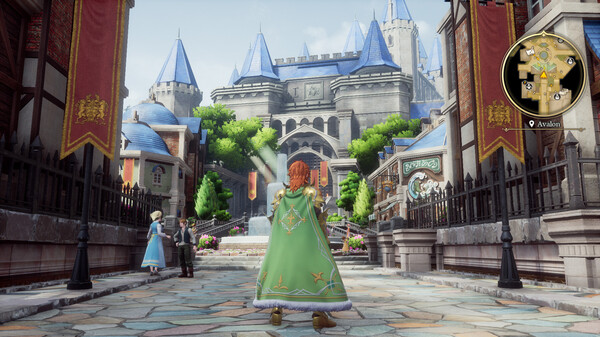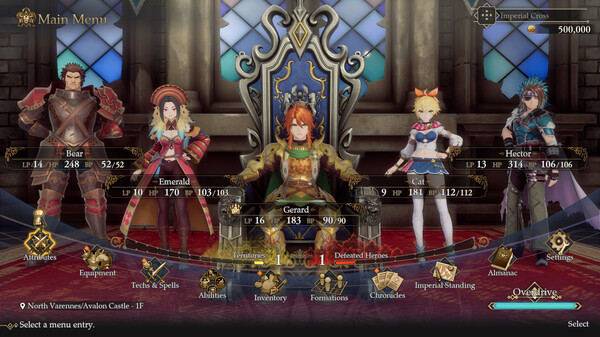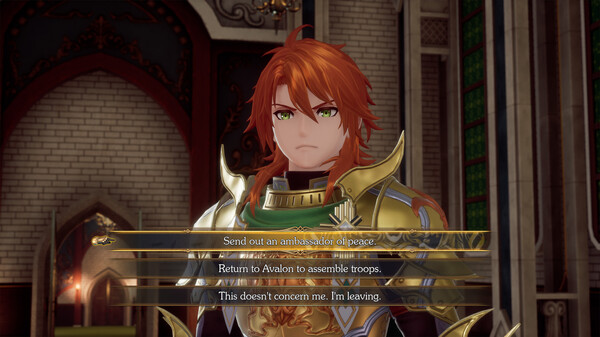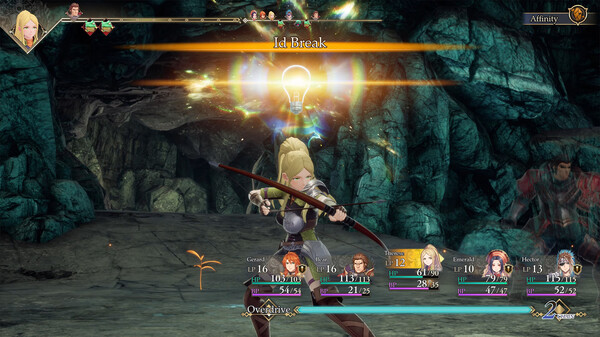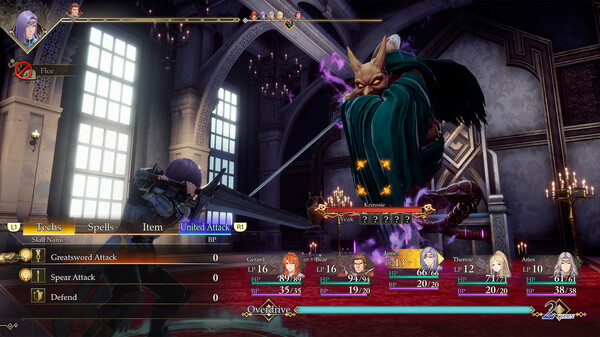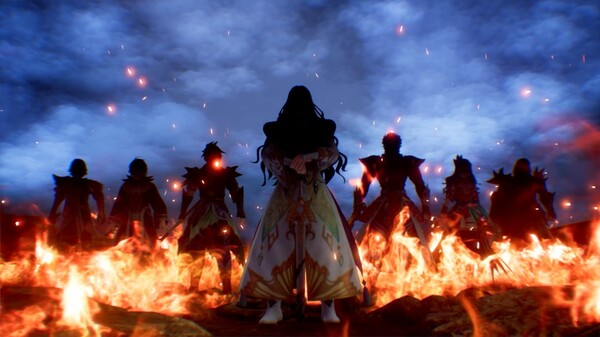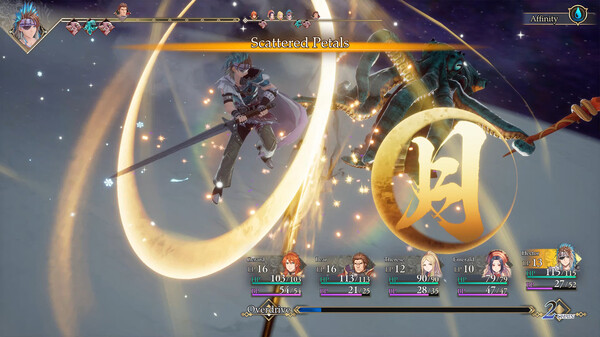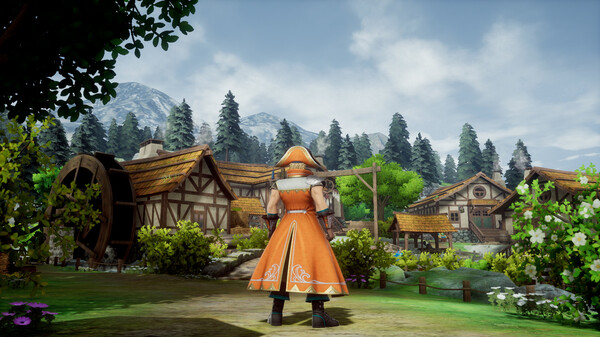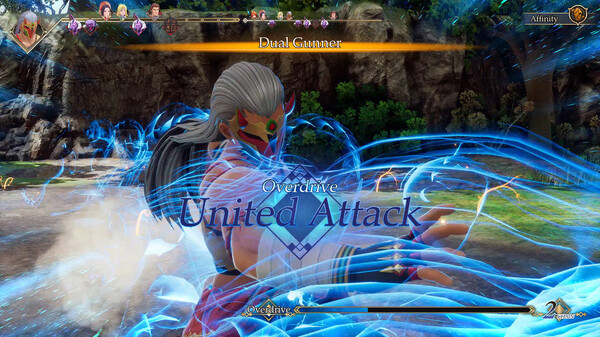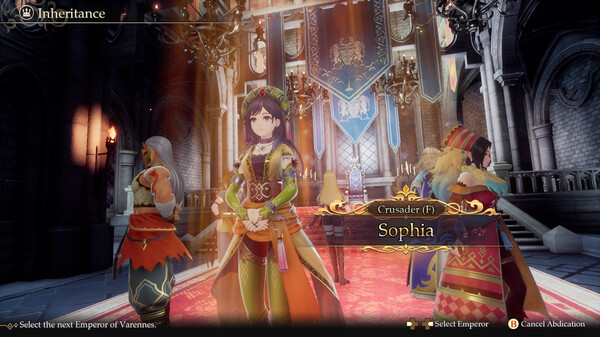Romancing SaGa 2: A Deep Dive into a Strategic RPG Review Romancing Saga 2: Revenge of The Seven is the remake of a classic that brings back Saga 2 now modernize for new audiences. The game offers a lot of depth thanks to its inheritance system, which allows Emperors from different eras to pass down their skills to the new generations, with the goal of defeating the Seven Heroes, a powerful group that threatens the Empire. The game starts with Emperor Leon, who is teaching his son Gerard how to protect the Empire and become stronger when the Hero Kzinssie decides to set his eyes on taking the Empire under his control. That premise is what makes Revenge of The Seven so unique as a JRPG, if the Emperor falls in battle, they will be lost and a new Emperor will be chosen, but passing down their skills allows them to dodge the most dangerous attacks of the heroes and become stronger. From being instantly killed, to mind-controlled or overwhelmed by sheer force, you must cultivate your Empire and defeat the Seven! What Makes It Worth Playing? Revenge of The Seven might not be graphically impressive, but the art direction along with the voice acting in English and the lore makes the world truly come alive on the screen. Every location matters, and the game gives you the freedom to tackle the Heroes in any order as well as choose what territories to acquire first. Because of that freedom in the choice of how you play the game, it makes every playthrough special as your decisions shape the world in a branching storyline. https://steamcommunity.com/sharedfiles/filedetails/?id=3355837597 The story is pretty good, as you can discover the reasons why the Seven Heroes are so bent on destroying the Empire, and the side quests are sort of mandatory in a way, as doing them will reward you with new classes, areas, and open up your choices for new Emperors to come, both in terms of their race and their class. It is a challenging game as well, so if you want an immersive JRPG that offers some serious obstacles, you might be interested. [H1] A JRPG with many faces In addition to being one of a kind and obscure, Revenge of The Seven is incredibly in-depth. Gone are the usual levels system that games of this genre use, instead the game comes with LP or Life Points. Each character has a fixed number of LP, and when it goes down to 0 they are permanently killed in battle and lost, meaning that your party members can only get knocked out so many times before they perish in battle. It adds a layer of strategy in the long term and it makes it so party members only need to be healed rather than resurrected in combat, which allows for more options at the cost of the risk of losing people. There is also Glimmering, which is how characters learn new skills. In combat, a character might have a lightbulb in their skills, when this happens there is a chance that using said skill will make them learn a new one, which they will use immediately. Glimmering as a system is interesting because sometimes, sacrificing the optimal move for the chance of learning new skills is worth it. Magic meanwhile is a random chance after battle, provided that the character has the magic tree leveled enough. The more a weapon is wielded and used or a magic tree is cast, the better characters get at using them. https://steamcommunity.com/sharedfiles/filedetails/?id=3356388647 The main goal is to defeat The Seven Heroes, and the order in which you tackle them is important as it mixes up things. Knowing which evasions to equip, what formations to use, and which classes to bring can be the difference between a certain victory or assured doom. The game has a steep learning curve, and some combats such as the Hero Noel can be particularly high in spike difficulty, but with the inheritance system and some patience, one can eventually surpass obstacles. Each of the Heroes is a show on the screen, some mock you, others intimidate you and they always pack a punch both in their presence and their super-powerful skills. An integrated lore that matters Learning the lore of the game is important, both for the story experience but also in a practical manner. As you develop the Empire, you can make new buildings such as smithies or even universities. In the latter, you will get tested on the lore of the game, and if you pass you will get handsomely rewarded each time. In addition to that, some quests won't be tracked by mini-map, requiring the player to pay attention to know where to go, which enriches the world exploration. Some decisions, such as deciding to let a volcano erupt or stopping it can change areas of the game and the consequences of it. https://steamcommunity.com/sharedfiles/filedetails/?id=3355834521 The attention to detail doesn't end there, as some Leylines affect the potency of spells and skills in battle based on their usage, but outside combat, there is an integrated world that offers plenty of goods. Making a garden gives revenue to the Empire while annexing territory gives plenty of other bonuses. Each location has its particular vibe to it and makes exploring it enjoyable as you find treasure chests and new secrets. Price Point Analysis and Replayability Revenge of The Seven shines in all of its aspects, and the only weakness the game suffers from is that with so much depth, it can be overwhelming at times if you don't get into it. It doesn't help that despite having a Casual difficulty, combats are so challenging in the latter half that missing a certain spell or tactic will make victory almost impossible. Nonetheless, it is a game that focuses on experimentation and being able to become stronger each time, so with some patience even the hardest battle becomes bearable. At 50$ bucks this is a wonderful game to get, with an amazing soundtrack, story, voice acting, and gameplay. The replayability is up to the player, as playthroughs can be quite different based on choices and the order the heroes are tackled. That being said, some players can be done after one run due to the game being 20-50 hours long based on choices to do or skip, along with the difficulty setting. Conclusion Revenge of The Seven is a remake that one asked for and an interesting proposal by Square Enix, but it shines in all of its areas, resulting in an enjoyable game that feels so different from anything else in the market. If you enjoy challenges, immersive stories, and a deep combat system, I recommend giving this game a try, for you be surprised at how good it is. [TABLE] [TR] [TH][H3]The Good[/H3][/TH] [TH][H3]The Bad[/H3][/TH] [/TR] [TR] [TD] [*]✔️ The inheritance system makes each generation exciting and memorable. [*]✔️ Deep combat that feels satisfying to play and strategize. [*]✔️ Very good story, with mystery, stakes, and duality in its topics. [*]✔️ Lots of freedom in which class to be, decisions, and where to go first. [*]✔️ The LP system makes for a larger strategy in keeping characters alive while giving leeway in battles. [/TD] [TD] [*]❌Steep learning curve, it starts simple but quickly develops into a complicated system. [*]❌Some extreme difficulty spikes such as the Hero Noel, the last battle, and some mini-bosses are abrupt and frustrating. [/TD] 9/10 AMAZING :) If you enjoy and find the review helpful, please follow my curator! [url=https://store.steampowered.com/curator/43679955/] StarsDeck
Expand the review



